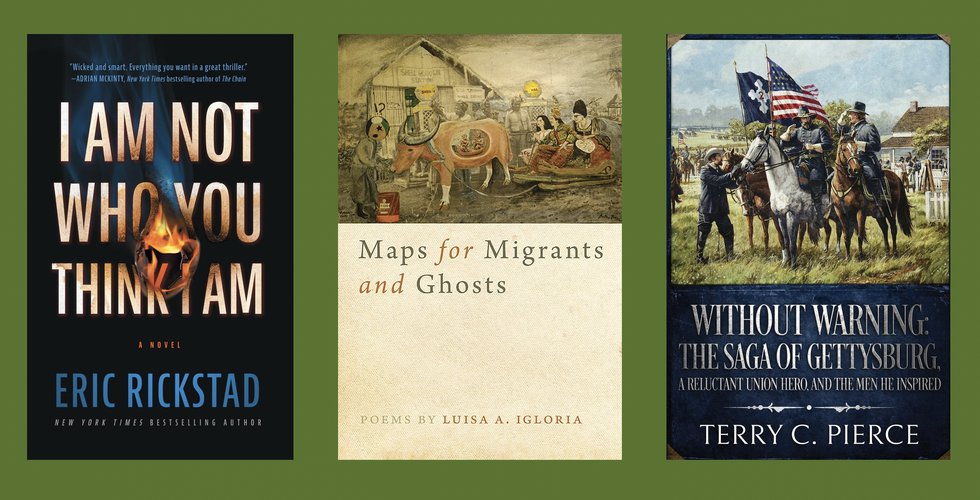Here are our briefly noted Southern books for this autumn.

Maps for Migrants and Ghosts (by Luisa A. Igloria. Southern Illinois University Press. 110 pp. $16.95)
Currently the Virginia Poet Laureate, Luisa A. Igloria’s latest collection discusses some of the current problems of today with past remembrances (though one should always be careful not to immediately conflate the narrator with the author). Her poems are accessible and lovely, but also haunting. They are not afraid to dive into serious topics. What strikes one most is the way myth is infiltrated into the poems. The poems can seem so modern, dealing with events and scenes that one readily recognizes, but then there is this almost magical aspect (something Lorca or Garcia Marques or Borges or Arundhati Roy) that ultimately comes from discussing a different culture and era. These more “exotic” poems also fit well into the idea that cultures migrate and that their heritage, like a benign ghost, also travels along, becoming a part of the American landscape—or wherever the immigrant decides to settle. Luisa A. Igloria has crafted a stellar collection that sings true and shows a myriad of emotions and walks of life.
Buy a Copy at The Bookshop.
I Am Not Who You Think I Am (by Eric Rickstad. Blackstone Publishing. 240 pp. $25.99)
A graduate of UVA’s writing program, Eric Rickstad’s latest thriller satisfies the hunger for action and mystery. Somewhere in between the types of books written by Grisham/Patterson and Chandler/Benjamin Black, this novel commences with the police chief of Shireburne, Vermont’s note to the town’s citizens regarding a manuscript by Wayland Maynard—surreptitiously and vaguely recalling early American fiction like The Turn of the Screw or The Scarlet Letter. Mayard, a former resident believed to have died in a fire in Shireburne in 1984 (and one wonders if “1984” means more than it insouciantly appears to), now takes center stage in the narrative. Eight years after finding a disturbing note following his father’s suicide, Mayard begins to wonder who his father really was. Lies, secrets, trauma. This is no fairy tale, no happy ending waiting at the end. This is a story about pushing through the pain to discover the truth about one’s past; whether the answers are satisfactory or not hardly matters here. A bracing story, get ready to stay up into the dead of the night!
Buy a copy at The Bookshop.
Without Warning (by Terry C. Pierce. Heart Ally Books. 788 pp. $55.95)
A giant of a book (as big as the bible!), Without Warning reexamines the Battle of Gettysburg. Told from the point of view of General George Meade of the Army of the Potomac (i.e. the Union army), none of the facts have been changed, merely the position of the spyglass. The use of timestamps works marvelously and acts not only as readable breaks but keeps the reader aware of where the narrative is. With these types of books, one expects a more epistolary format—letters from one character or another. The book would have not suffered from this fact, though it would have been all the bigger for it. But the narrative voice is compelling and for history buffs, there will be immense pleasure in this chronicle of war, heroism, courage, and carnage. Terry C. Pierce brings to the forefront the Battle from the Union’s perspective and broadens the history, rather than limiting it.
Buy a copy at The Bookshop.








